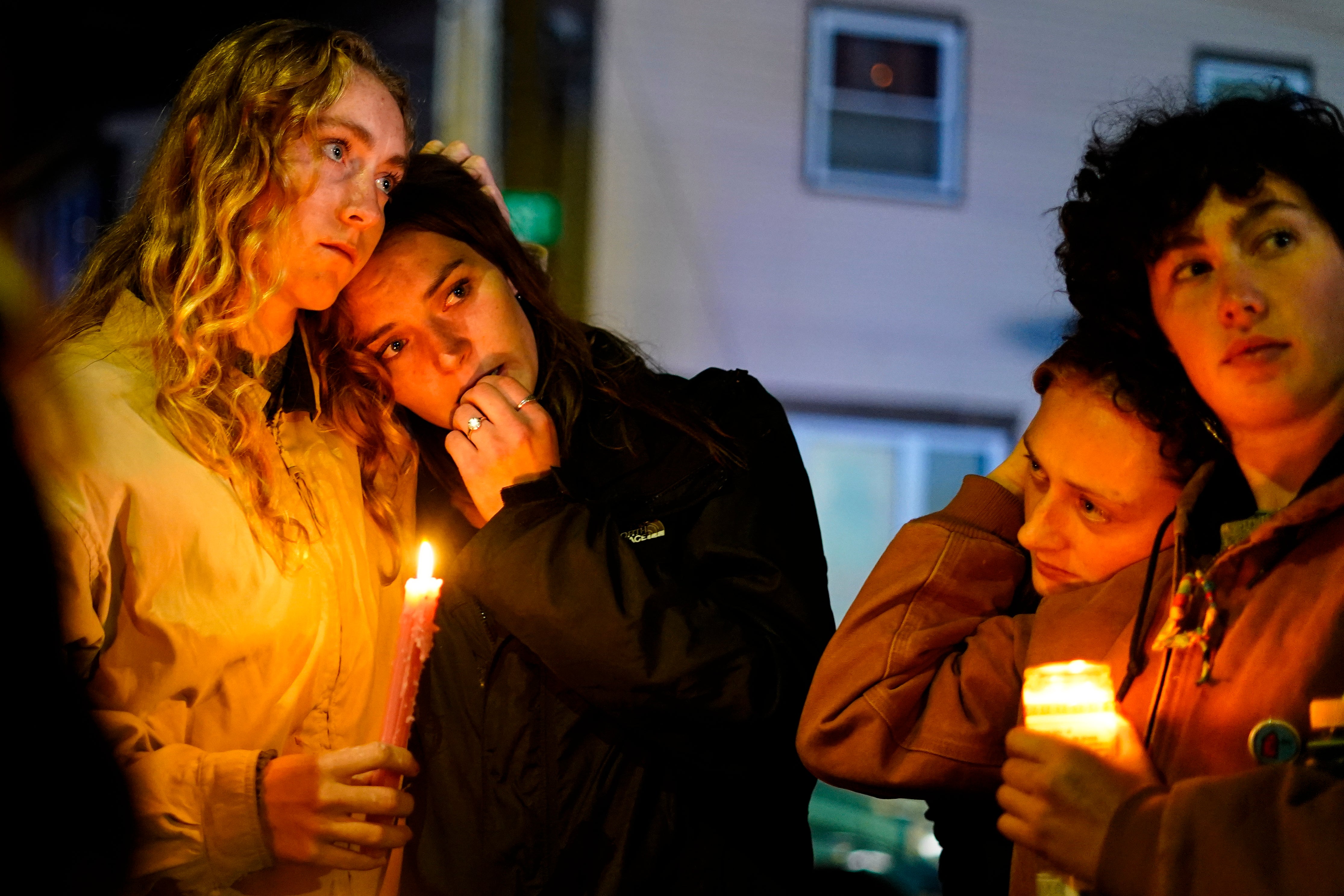I covered Maine’s first mass shooting — it can happen anywhere
Rep Jared Golden admitted last week that he wrongly believed Lewiston was above mass gun violence — but no community in America is


Your support helps us to tell the story
From reproductive rights to climate change to Big Tech, The Independent is on the ground when the story is developing. Whether it's investigating the financials of Elon Musk's pro-Trump PAC or producing our latest documentary, 'The A Word', which shines a light on the American women fighting for reproductive rights, we know how important it is to parse out the facts from the messaging.
At such a critical moment in US history, we need reporters on the ground. Your donation allows us to keep sending journalists to speak to both sides of the story.
The Independent is trusted by Americans across the entire political spectrum. And unlike many other quality news outlets, we choose not to lock Americans out of our reporting and analysis with paywalls. We believe quality journalism should be available to everyone, paid for by those who can afford it.
Your support makes all the difference.“I just thought it was some type of a prank call.”
“I didn’t think I’d live to see something like this happen here.”
Before 25 October, Lewiston, Maine was known for being quiet and peaceful. That was forever tarnished by a gunman who ambushed two frequented and beloved social spots, killing 18 and injuring 13 others.
My colleague and I began driving around the deserted streets of Lewiston 36 hours later, with a manhunt still underway, a lockdown still in place and shock still fresh in the faces of the few who ventured into the streets. Every local we spoke to voiced an eerily similar caveat: a shooting like this couldn’t happen here. Not to our community, not to us.
Their reckoning was a stark contrast to the way the world beyond state lines processed it. In conversations with colleagues, friends and family, we all fell into a bizarre trance after finding out about the latest mass shooting: unsurprised it had happened, and desperately hoping for a low death toll.
Hoping that the victims were not children.
That the victims’ last moments alive were not filled with fear and anguish. Hoping that one moment they were and then they weren’t and that they didn’t have time to process the seconds in between.
Feeling defeated, and at a loss for how to break the harrowing cycle of this very uniquely American epidemic.
But as Lewiston reels from the violence, it is important we remember that whatever we tell ourselves to cope with the horrors of news headlines is just that — just a way to shelter our feelings. The dichotomy of tragedy-fatigued resignation and utter shock when yet another mass shooting happens versus when it happens to your very own is keeping us sane, but it is also standing in the way of us attempting to find a solution.

When a two-digit death toll no longer prompts surprise, let’s make sure we remember their names and faces, and the different layers of ripple effects that their deaths entail. In Lewiston, I’ll never forget the friends and family hoping to find a connection to their slain loved one in a bite of ham and Cooper cheese at their favourite breakfast place. I will think of the unborn baby girl who will never meet her father.
And let the scale of those atrocities, instead of our differences, drive our determination for change.
When my colleague and I interviewed people in the Lewiston and Auburn area, one thing became clear. The devastation in the face of a father guarding his local supermarket with a gun in his holster visible to everyone and fiercely defending his support of the Second Amendment was just the same as that of an elderly woman whose disgust for weapons of any kind was evident as she told us rifles have no place in the streets.
While our stances on policies and how they could put an end to this violence may not align, we must find a middle ground — an attempt of sorts that will likely require both legislation and a national discussion.
In the immediate aftermath of the shooting, Lewiston native and House Rep Jared Golden reversed his opposition to a ban on assault weapons, also asking for forgiveness from the community and calling on Congress to act swiftly.
“I had the false confidence that our community was above this,” he said.
But no community is above this. So we must be ready to make compromises. How many more school shooting drills, televised funerals, and beautiful yet agonizing vigils and memorials until they are the last?
It happened to unsuspecting elementary school children in Sandy Hook and to adults dancing the night away in the heart of Orlando.
It happened in Parkland, an affluent city with among the lowest crime rates in the country, and in Uvalde, a rural town“where everyone knows everybody.”
It happened at Walmarts and schools and festivals and churches.
And it happened in Lewiston, marking the US’s tenth worst mass shooting in recent history.
There are no outliers, no criteria and even though it should not ever happen, and you believe it would never happen — you and your community could, sadly, be next.
Join our commenting forum
Join thought-provoking conversations, follow other Independent readers and see their replies
Comments